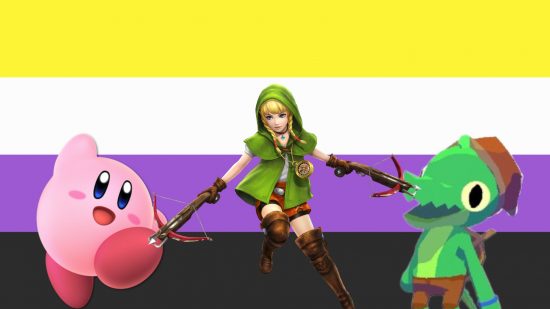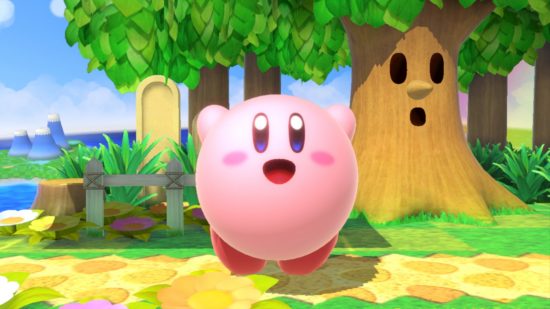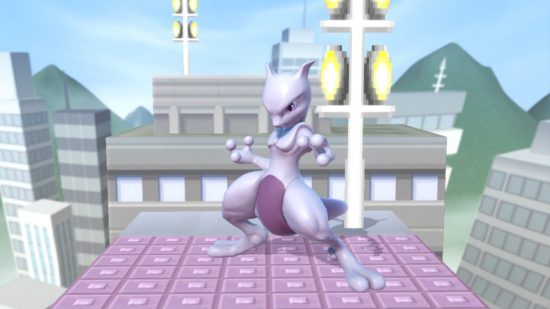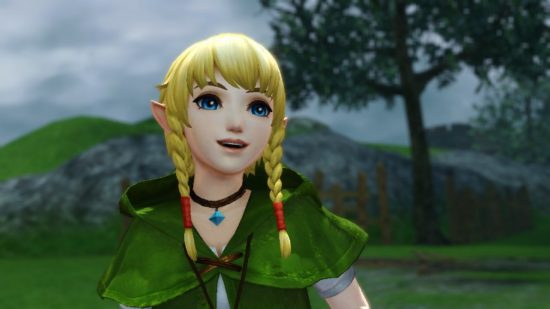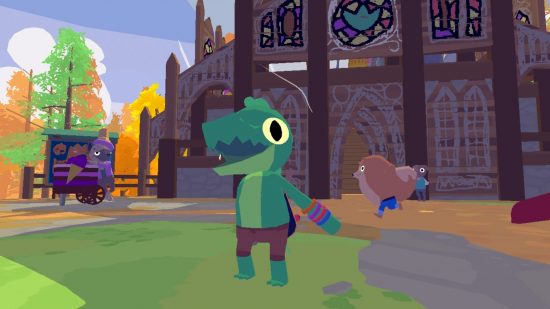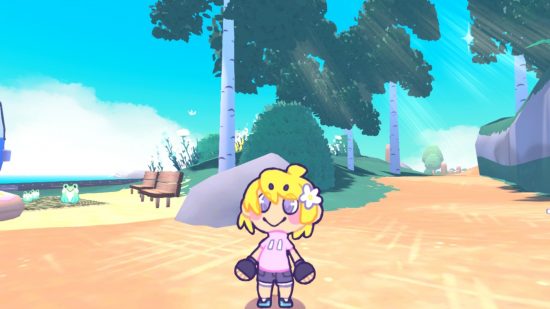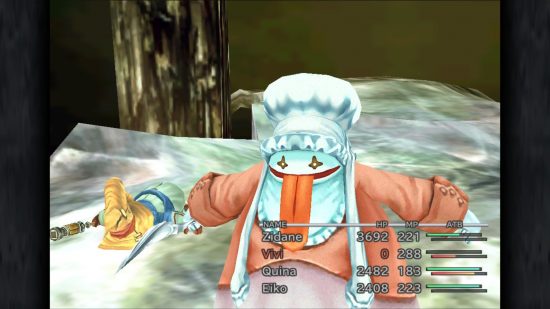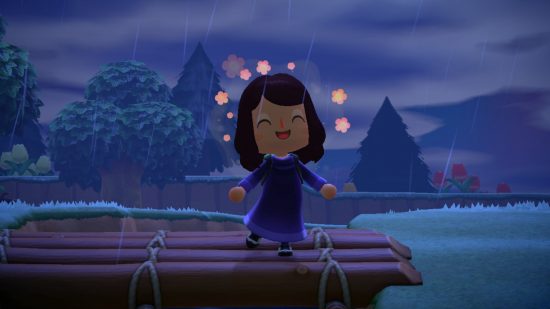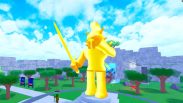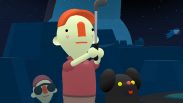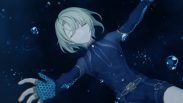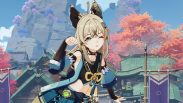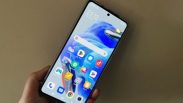Let’s take a look at the best non-binary characters in Nintendo games. (To clarify, when I say ‘Nintendo games’ here, I specifically mean ‘games that have appeared on Nintendo consoles’, rather than games that were developed by them.) When you look into it, you’ll find that there are really loads of videogame characters who don’t conform to a binary definition of gender: including some pretty big names. Non-binary people have always existed in the world of games, just as they have always existed in reality.
Of course, there are probably some that I’ve missed here – I don’t know every single non-binary videogame character – but I’ve tried to draw from a variety here. You’ll see some of the best Nintendo Switch games represented on this list, with characters from huge Nintendo games, and you’ll see a few faces from Switch indie games too.
The best non-binary characters in Nintendo games are:
1. Kirby
- Debut: Kirby’s Dream Land (1992)
“But Kirby is a boy!” I imagine lots of people saying, and while it’s true that he’s typically described using masculine pronouns, that doesn’t mean that he isn’t non-binary – and no, I’m not just saying that because he’s pink and that’s a stereotypically feminine color.
There’s actually a fairly decent amount of evidence that Kirby is non-binary – mostly coming from Japan. Official reference books and profiles usually list Kirby as “gender unknown”, but they’ve also been described as female by the original creator of the Kirby games, Masahiro Sakurai, and has been shown wearing overtly feminine outfits.
While we don’t have an official comment on that matter (and Nintendo won’t even confirm a romance between Luigi and Daisy, so they’d never confirm this), all the evidence suggests that Kirby’s gender isn’t a straightforward matter of him being a boy – besides which, he’s an alien being that may not even have different sexes as we do.
(PS: yes, we know Kirby technically made his debut in the SNES game Arcana, but we’re not going to get into that).
2. Mewtwo
- Debut: Pokémon Red & Pokémon Green (1996)
Mewtwo, like Kirby, above, is described as being “unknown” gender, which just seems to be Nintendo’s way of saying “We can’t determine if they’re male or female, so we are going to say ‘unknown’ even though ‘non-binary’ would probably make more sense.
Mewtwo is one of many Pokémon who fall into the ‘unknown’ gender category, and Mew is in there right alongside them. In the Pokémon games, ‘unknown’ means that scientists haven’t been able to identify the creature’s gender so that rules out the likelihood of Mewtwo having the physical characteristics commonly associated with biological males or females.
Something we also know about Mewtwo is that they’re a clone of Mew, and something we know about Mew is that it’s capable of physically giving birth (based on the in-game diaries which describe Mew giving birth to Mewtwo). This most likely means that Mewtwo is capable of giving birth too. Either way, Mewtwo is another case of a non-human being whose gender identity can’t be understood through a binary lens, and so I describe them as a non-binary character.
3. Link/Linkle
- Debut: The Legend of Zelda (1986)
Link is a hero eternally reborn throughout history. Most of the time, we see Link as a man, but Hyrule Warriors introduced us to Linkle – the supposed first female incarnation of that hero. Of course, this game makes things a bit confusing because there’s also a masculine Link who is also suggested to be the incarnation of the hero for that era. Without Linkle, Ganon would have prevailed, but without the male Link, he would have too, and the game leaves the possibility that Linkle just convinced herself that she was the hero reborn.
It’s ambiguous enough that you can interpret it either way (and they likely did this on purpose to avoid enraging the less pleasant members of the Zelda fan community), but I choose to read Linkle as an actual Link… if this is the case, Link has a genderless soul and can be reborn in any body. Seeing it this way, though individual Links may be male or female, the overall character would be non-binary (or maybe gender fluid would be a better description).
I suspect it’s only a matter of time before we get a clear-cut female Link in a main series game, but it hasn’t happened yet. Still, the Zelda games so far have had the masculine Links defy typical gender expectations through the clothes that they wear – Tri Force Heroes, Breath of the Wild, Age of Calamity, and Tears of the Kingdom all let you dress Link in explicitly feminine outfits.
4. Lil Gator
- Debut: Lil Gator Game (2022)
We’ve gone from Link to a character clearly inspired by Link (even in-universe). Lil Gator is a friendly little alligator who enjoys playing games with their sister which are essentially copyright-friendly versions of The Legend of Zelda.
Lil Gator Game is a delightful, cozy game that I strongly recommend. Lil Gator themselves is also the first character on this list who is explicitly non-binary. They’re only ever referred to with they/them pronouns, and at the start of the game you name them (like you do Link in most Zelda games), but in the context of the game, the character is choosing their own name, and everyone they meet completely accepts the choice afterward. Very heartwarming.
The game itself has a very progressive ethos – there are other non-binary characters in the game, there are wheelchair users, and it’s very focused on positive interactions with others, and just generally treating people right. It’s never there to preach us a lesson about any of these characters, they’re just there, and they’re accepted for who they are without question. What a great game.
5. Niko
- Debut: Here Comes Niko! (2021)
Another explicitly non-binary character here. In this game, you play as Niko, who has left home in order to start a career as a ‘professional friend’ and they just go around various worlds running errands for people in order to earn coins.
Niko has a very androgynous design and uses they/them pronouns. They have a backstory about them having become estranged from their parents, which I found to have been handled in a very tasteful and realistic way – but the game itself is by no means a gloomy one, featuring Niko encountering all kinds of quirky and eccentric characters.
Here Comes Niko! is pretty great with its representation in general – two of my favorite characters in the game are a pair of elderly male tortoises who are married to one another (tortoises are sometimes gay in real life, by the way). It’s a great example of indie games working hard to be inclusive, and I hope this kind of thing becomes a lot more mainstream in the future.
6. Quina
- Debut: Final Fantasy IX (2000)
Quina is a character I relate to enormously, because, like them, I like to eat everything that I see (though, unlike Quina, that doesn’t include living creatures for me). Quina is one of the party members in Final Fantasy IX (a game Nintendo fans finally got to play in 2019 when it came out on Switch) and I absolutely love everything about them.
The Final Fantasy series is no stranger when it comes to defying typical gender expectations – there are loads of male characters with many feminine qualities and female characters with masculine qualities. Quina, however, is undeniably a non-binary character, being referred to with the pronoun “s/he” throughout the game (though they do occasionally say “him” and “his” – perhaps in-universe slip-ups from the characters).
Final Fantasy IX is filled with many lovable characters, but for me, Quina is the best. Their comedic antics throughout the game never failed to put a smile on my face. I wish they appeared more regularly in other games – Cloud and Sephiroth in Smash Bros? Nah. Give me Quina any day. (No disrespect to them. I love Cloud and Sephiroth).
7. Villager
- Debut: Animal Forest (2001)
Every playable Animal Crossing Villager is non-binary. What makes me say that? Well, they can just walk up to a mirror and change their gender identity at any time (well, ever since Animal Crossing: New Horizons, anyway). I suppose, more accurately, I should describe them as gender fluid, but either way, they aren’t simply one thing or another.
The Villagers are all just avatars though, rather than individual characters, hence me putting them at the bottom. If I go down that rabbit hole, I could also include Inklings (who can also switch genders on the fly), and Miis (because everyone Mii of a non-binary person is inherently a non-binary character in a game). Still, I thought the Animal Crossing Villagers deserved this spot the most – partly because they’ve been able to wear any type of clothing since 2012.
I’m sorry if I missed any of your favorite non-binary characters – this list is by no means exhaustive, rather, it’s a selection of my personal favorites. I appreciate that some of these are more reading between the lines, and some fans will disagree, but I think they’re all perfectly legitimate readings and choices. I’m glad non-binary people get represented in video games, and I look forward to more and more of this in the future.
